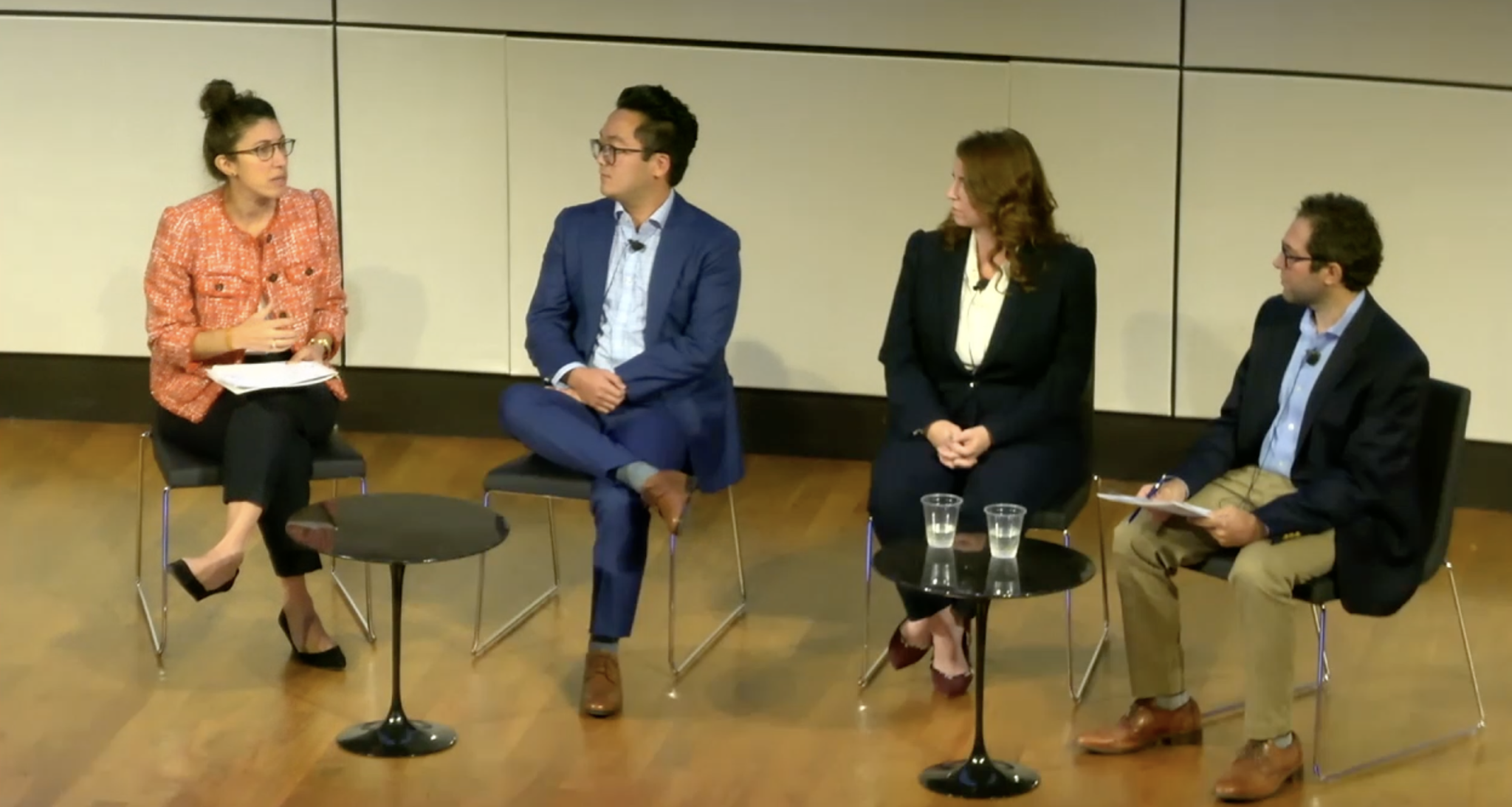Yale hosts interdisciplinary Clean Energy Conference
Speakers from all over the United States came to New Haven last weekend to discuss the latest innovations in the clean energy sector.

Selin Nalbantoglu, Contributing Reporter
The Yale Clean Energy Collaborative hosted a hybrid Clean Energy Conference to discuss the newest advancements in green energy businesses and innovations.
The Yale Clean Energy Collaborative is an interdisciplinary initiative housed in the School of the Environment with faculty from a variety of other Yale schools and programs. Programming included talks from members of start-ups working to develop new environmentally friendly technologies, government representatives who provide public funding for energy alternatives and multinational corporations looking to enter the green energy sector.
“Eleven years ago, Connecticut founded the first [green bank],” Stuart DeCew, executive director of the Yale Center for Business and the Environment, said. “Connecticut put it together. People, through blood, sweat and tears and a really entrepreneurial spirit effort on the policy side… constructed something that is now a model that is replicated all over the United States and looked at all over the world.”
In a panel called “New Business Models for New Technologies,” representatives from various renewable energy companies spoke about the challenges and opportunities when attempting to implement new green technologies.
One major facet of the green energy transition is the role of politics and the government in supporting or preventing the movement.
“The uptake [of green energy] in red state markets is not because it’s pitched as decarbonization but because it’s a profit opportunity,” said Mothusi Pahl SOM ’07, vice president of business development at Modern Electron, a heat and hydrogen company in Seattle. “California will jump on board because of the carbon intensity score. Texas will jump on board because of price.”
Sara Harari SOM ’19 ENV ’19, associate director of innovation and strategic advisor to the president at the Connecticut Green Bank, also added that the state government has passed legislation to mandate that all school districts switch to clean energy school buses by 2040.
However, companies attempting to pitch their clean energy buses face the challenge of proving the safety of these new technologies to school boards who are more accustomed to traditional diesel or gas-powered buses.
While many of the alternatives to traditional combustion engine buses are safer on a per child per mile basis, Harari said, companies must obtain many certifications on the federal and state level before bringing their product to market.
Some of these certifications take years to complete, and the costs pile up very quickly, making it difficult for smaller start-ups to get their projects off the ground. Harari suggested reworking the permit and certification requirements to spread them out over time in order to avoid front-loading the costs of permits while still maintaining safety standards.
Despite some of the challenges inherent to the implementation of green energy, panelists agreed that there are currently many opportunities for start-ups and new businesses to expand.
“It is a wonderful moment in time to get into clean energy as a business school student,” Jake Seligman ENV ’12, deputy general counsel of Clearway Energy, said.
Seligman pointed to the Inflation Reduction Act which provides tax credits for renewable energy and the recent development of green energy projects in locations where coal or oil jobs disappeared as opportunities for green energy’s expansion.
At the “Transforming Clean Energy Transportation” panel, Brooke Vandygriff, chief operating officer at Highly Innovative Fuels, explained that Highly Innovative Fuels is “complementary” to the electric vehicle industry because they are part of the transition from carbon-emitting combustion engines to clean electric vehicles.
Highly Innovative Fuels uses carbon-capture technology that removes carbon atoms from the atmosphere and uses them to create methanol, a molecule that acts as “the lego” for building different types of fuels, according to Vandygriff.
This carbon-neutral fuel can power current gasoline vehicles without needing to change any of the infrastructure associated with traditional gasoline like gas pipes or gas stations.
Carine Dumit, the director of marketing and public policy at EVgo and panelist for “Transforming Clean Energy Transportation,” works on expanding access to public fast charging stations for electric vehicles.
“EVgo is the largest public charging network with over 900 locations across 30 states and 60 major metropolitan areas,” Dumit said. “DC fast charging plays a critical role to be able to provide fast, reliable and affordable access to electric vehicles.”
She also highlighted the importance of a synergy between private sector innovation and public policy to support the transition to electric vehicles and clean energy transportation.
Michael Baicker, a director at the global consultancy firm EY-Parthenon, added that there is substantial venture capital interest in developing these projects, and consultants are working to design the financial and infrastructural frameworks necessary to support clean energy projects.
The closing keynote included a conversation between Gretchen Kittel SOM ’92, the acting director of outreach and business development at the Department of Energy’s Loan Programs Office, and Peter Boyd, a lecturer at the Yale School of Environment.
Kittel explained that her role is to allocate approximately 100 billion dollars in federal funds to assist investment in clean energy projects. Often called a “bridge to bankability,” the Loan Programs Office helps companies who have passed the prototype stage in developing their technology but need some initial funding in order to bring their finished product to market.
According to Kittel, the goal is not to compete with traditional capital and private banks but rather to provide government support to clean energy initiatives with finished, scalable technologies that need funding and cannot access traditional banks, highlighting the importance of private and public sector investment in the development of green energy.
The Yale School of the Environment was founded as the Yale Forest School in 1900.







